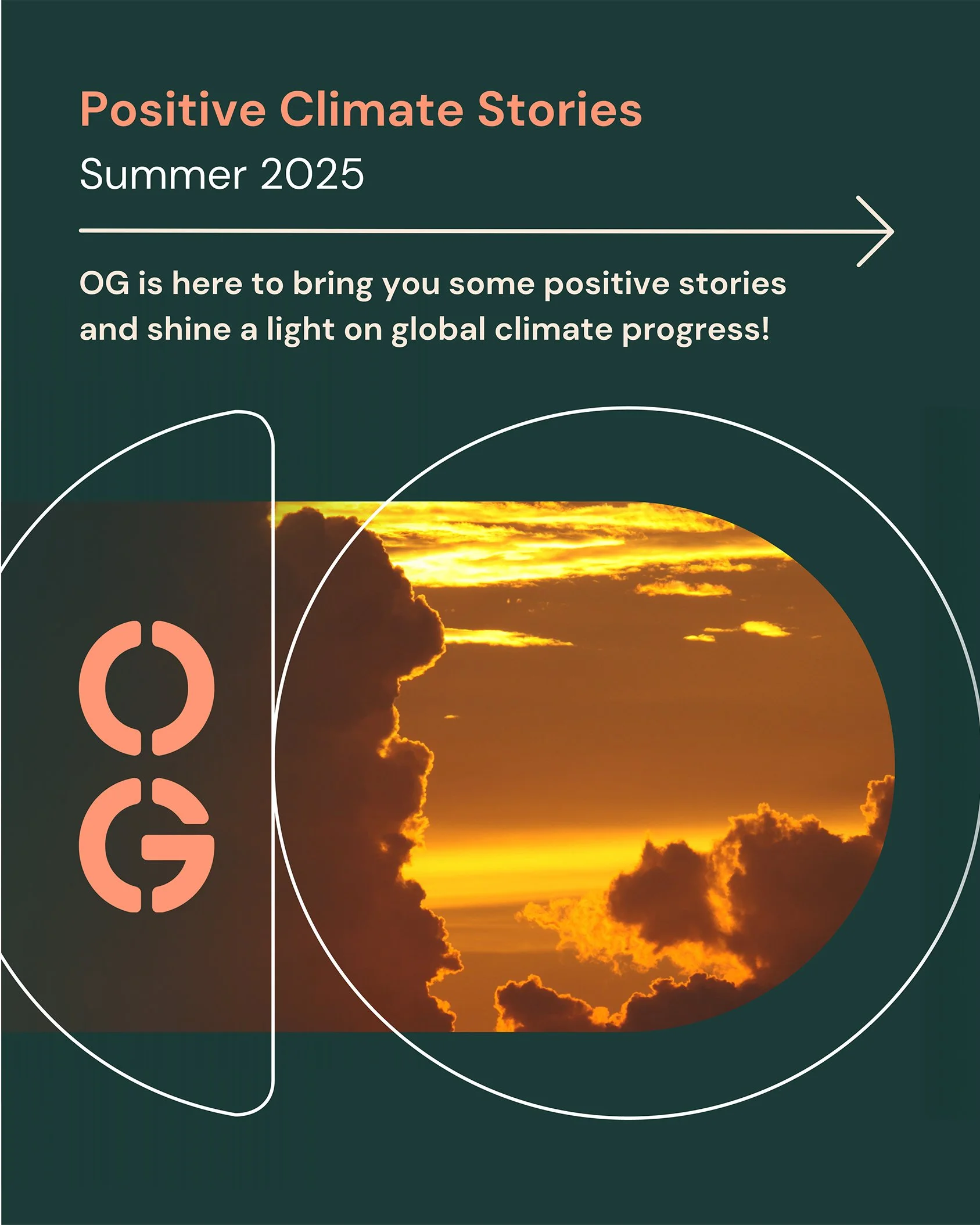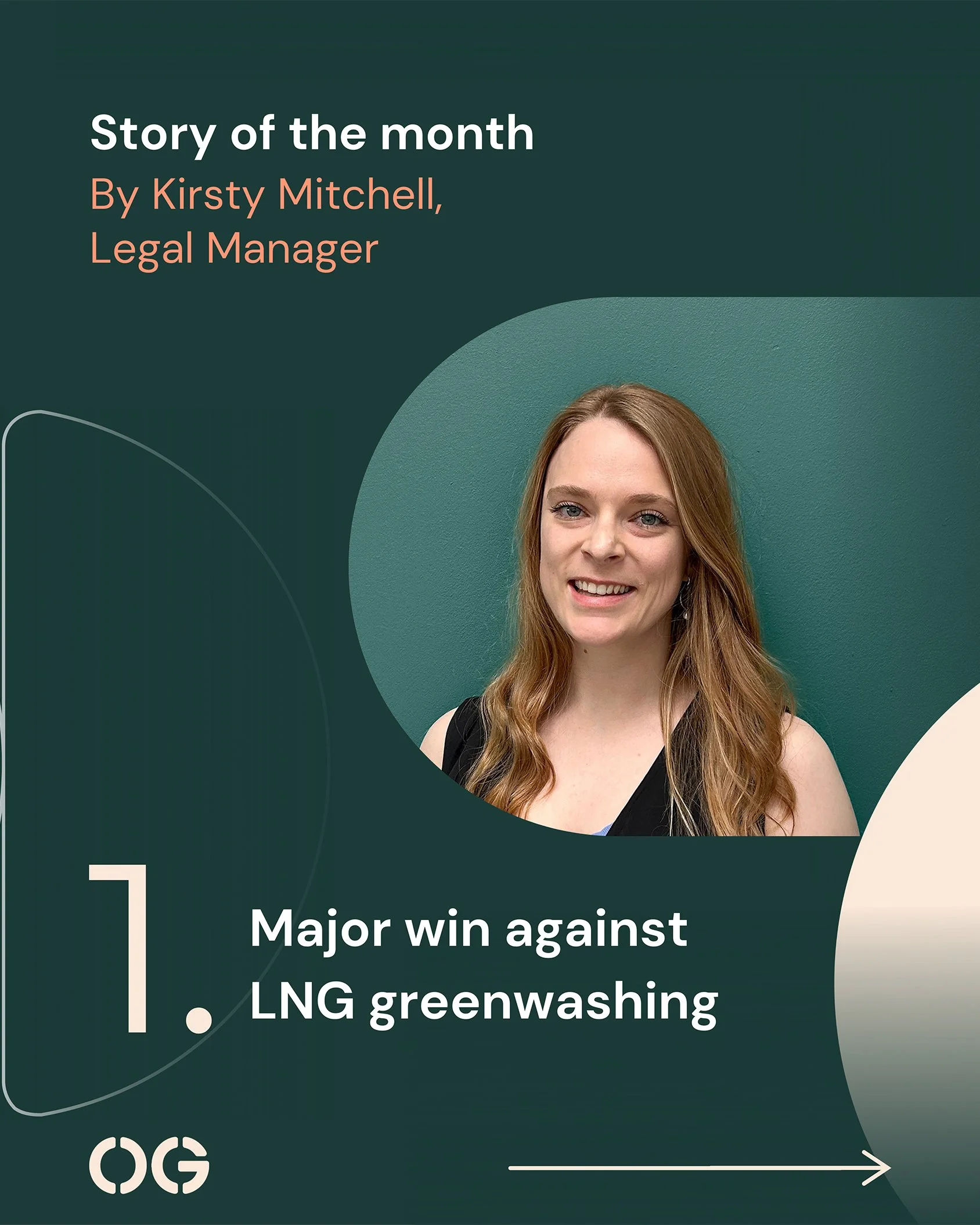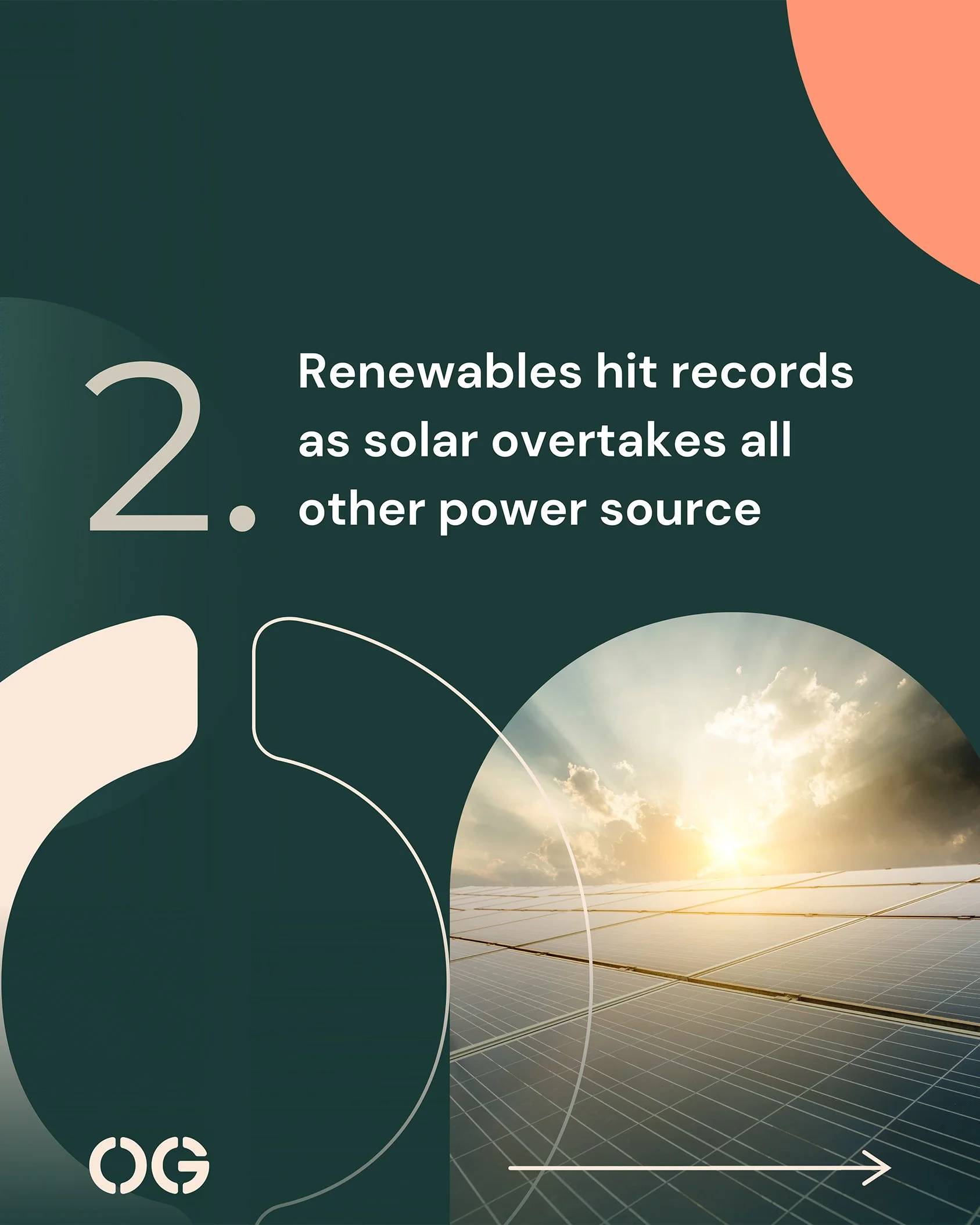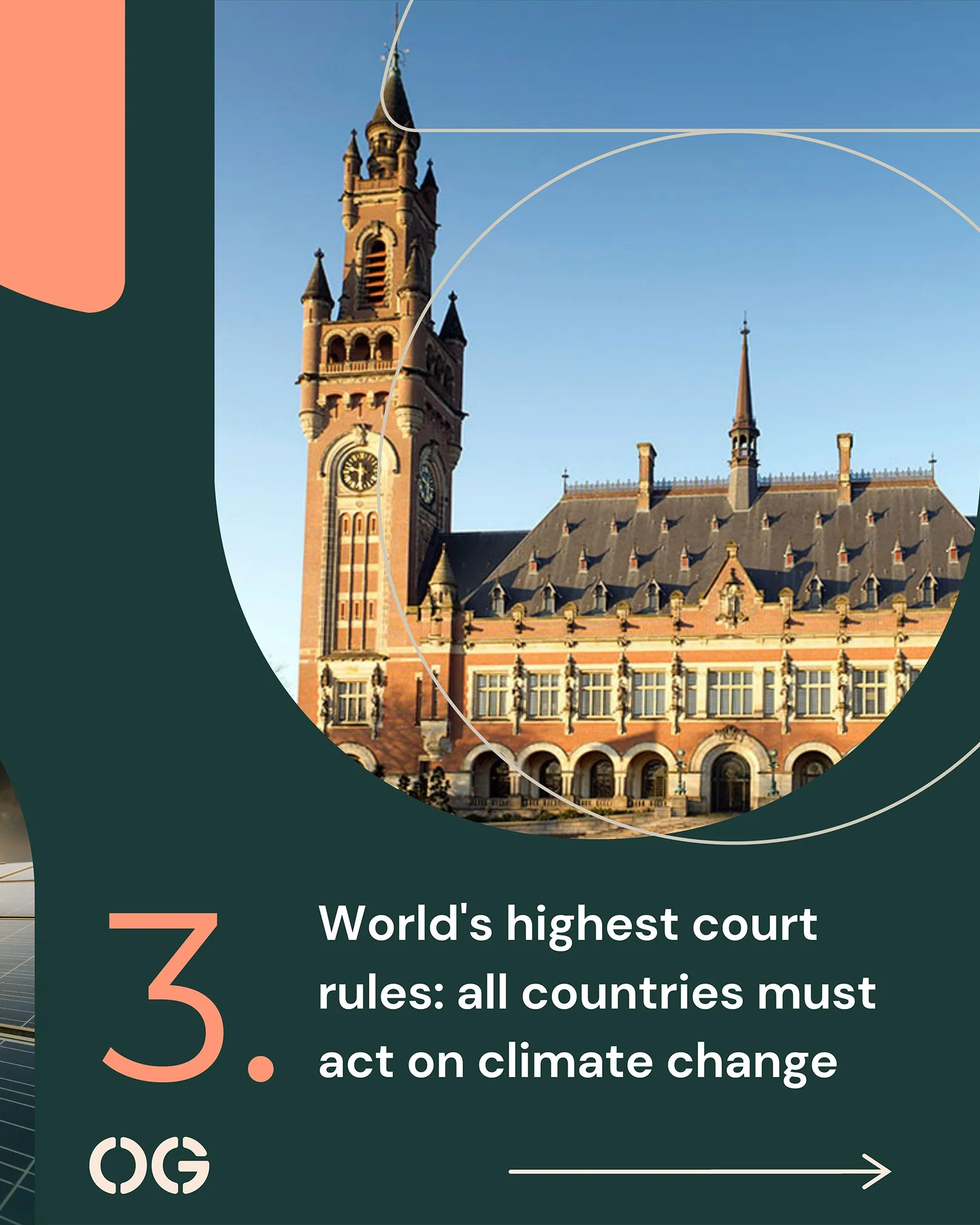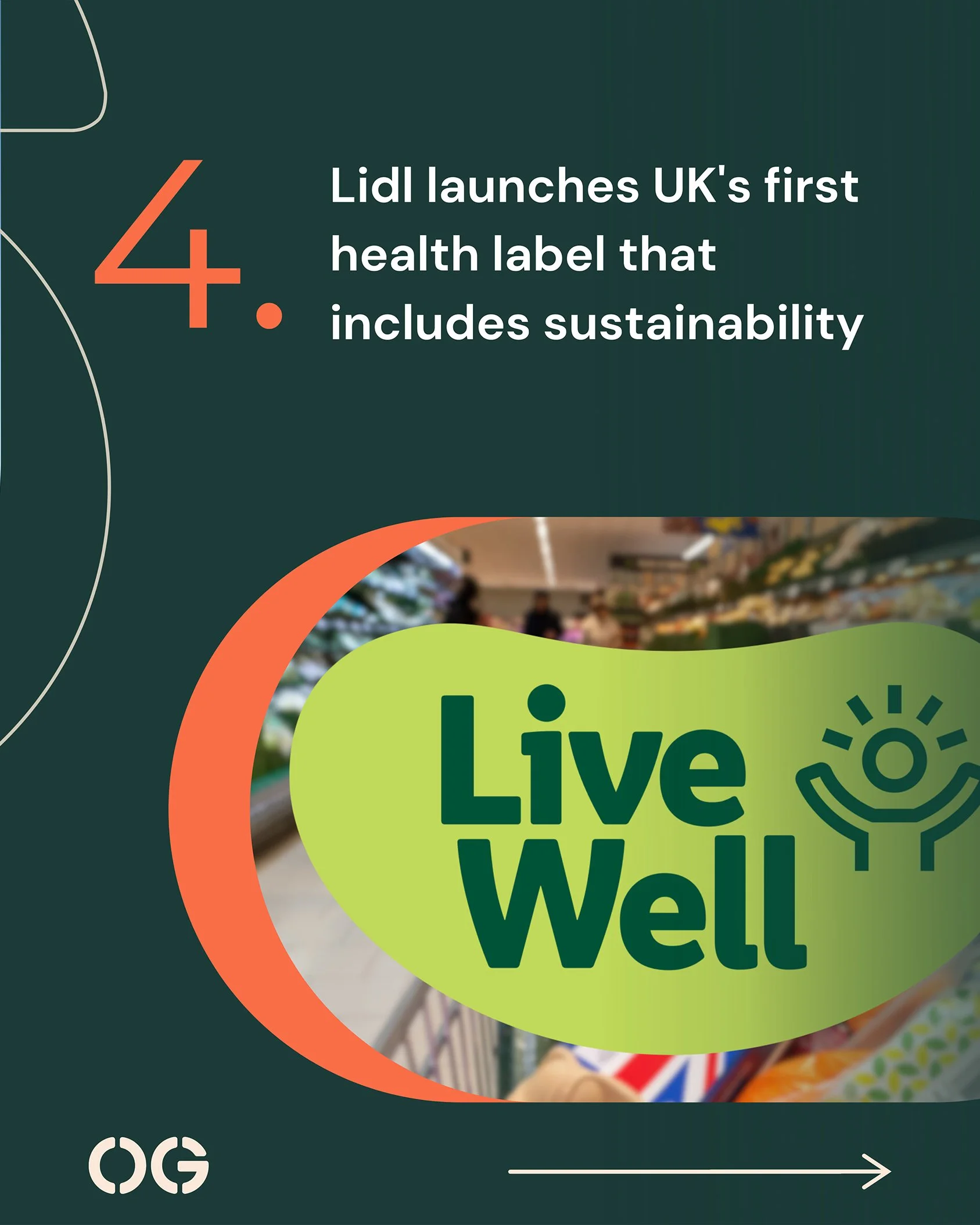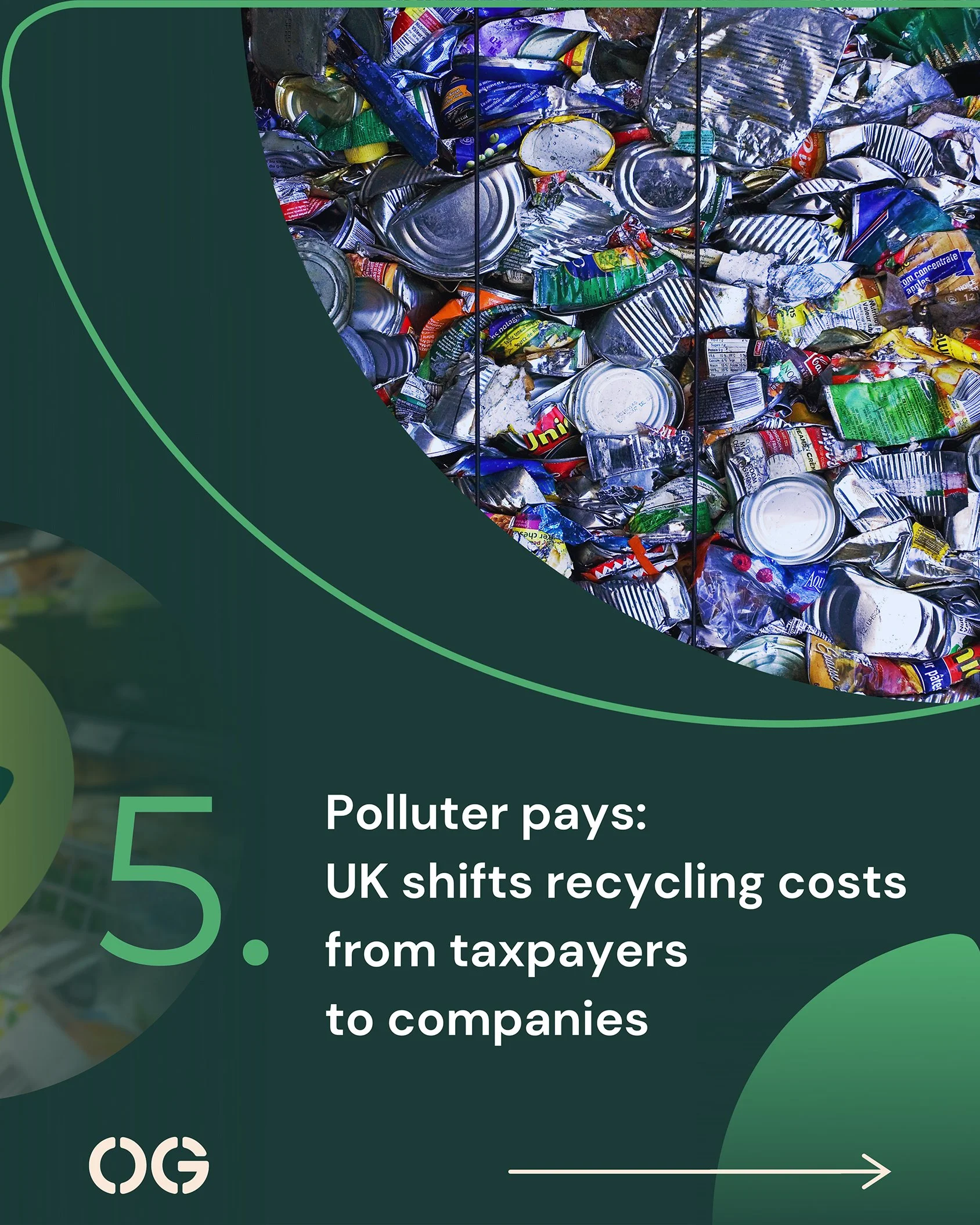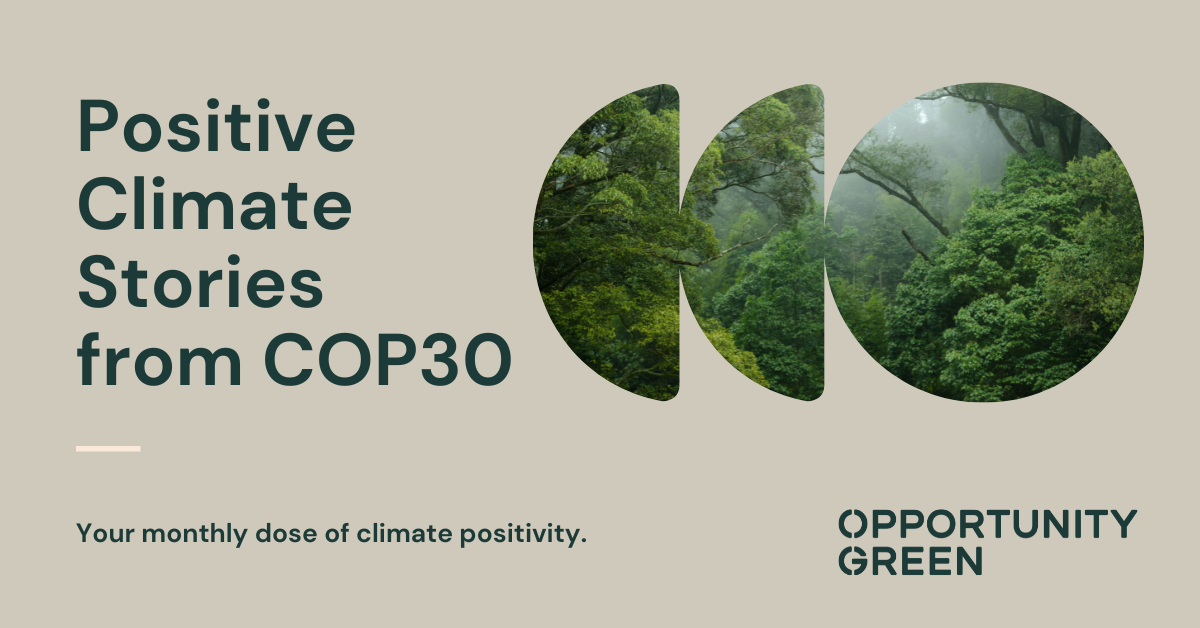Summer Positive Climate Stories
From advertising watchdogs cracking down on cruise industry greenwashing to renewable energy breaking records across Europe, summer 2025 has been a season of accountability and breakthroughs. This edition highlights major legal wins, innovative business solutions, and unexpected discoveries about wildlife resilience.
Story of the month
1. Major win against LNG greenwashing
The UK’s Advertising Standards Agency (ASA) set a clear precedent, ruling that cruise adverts promoting fossil LNG as “clean” or “eco-friendly” are misleading to consumers.
The rulings concerned adverts by cruise travel agents for MSC Cruises that made environmental claims about the company’s LNG-powered ships: MSC World Europa and MSC Euribia. Webpages by the ticket agencies described the ships as “eco-friendly” and powered by “the world’s cleanest marine fuel”.
In March 2025, Opportunity complained to the regulator, outlining how the adverts were misleading to consumers; contrary to being climate friendly, fossil LNG has devastating implications for the climate. Why? LNG is a fossil fuel mainly made of methane. Methane is a greenhouse gas over 80 times more potent than carbon dioxide, which leaks throughout LNG’s lifecycle from extraction to combustion.
As noted by the ASA in the rulings, methane emissions make a substantial contribution to climate change. A strong evidence base also shows that the use of LNG as shipping fuel can increase greenhouse gas emissions compared to conventional fuels.
The ASA found that the adverts breached several provisions of the UK non-broadcast advertising code (CAP code) and were likely to mislead. Both advertisers removed the claims from their website, and the ASA ruled that the ads must not appear again in the same form. The ASA also told the advertisers to ensure future claims were compliant.
Beyond the individual outcomes for the advertisers, these rulings set a clear precedent for the entire cruise industry against advertising fossil LNG as ‘eco-friendly’ or similar. This issue is systemic: over the last two years, Opportunity Green has identified, called out and legally challenged the veracity of environmental claims being made by cruise companies about fossil LNG. At last, the ASA’s rulings provide much-needed clarity and serve as a reminder to the wider shipping industry that it must look beyond LNG as an alternative ‘sustainable’ fuel.
2. Renewables hit records as solar overtakes all other power source
Renewable energy is breaking records across the globe. For the first time, sunlight generated more electricity in Europe than any other source, reaching 22.1% of the electricity mix in June 2025, surpassing nuclear (21.8%), wind (15.8%), gas (14.4%) and coal (6.1%).
The momentum is accelerating worldwide. Global investment in green energy projects hit a record £286bn in the first half of 2025 – a 10% increase compared to the same period in 2024. Meanwhile, renewables accounted for 92.5% of all new electricity capacity added globally in 2024.
Europe is witnessing unprecedented shifts. Thirteen European nations set new solar generation records in June, including Austria, Bulgaria, France, Germany, The Netherlands and Poland. Most remarkably, Poland – Europe's fourth-largest carbon emitter – sourced more electricity from renewables (44.1%) than fossil fuels (43.7%) for the first time in June.
The economics are compelling too. Research shows that 91% of renewable power projects commissioned in 2024 were more cost-effective than fossil fuel alternatives. UN Secretary-General António Guterres declared that "fossil fuels are running out of road" and calling clean energy "smart economics" due to plummeting renewable costs.
From China installing solar panels at 100 per second to Africa's solar surge, the renewable revolution is gaining rapid growth across the world.
3. World's highest court rules: all countries must act on climate change
On 23 July 2025, the International Court of Justice issued a unanimous advisory opinion that marks a defining moment for international climate law. The world's highest court ruled that all states have legal obligations under international law to take decisive action to prevent climate change and limit global warming to 1.5°C.
This historic decision represents a triumph for climate-vulnerable nations, particularly Pacific Island states and the youth activists who championed this legal challenge. The Court made clear that countries' climate commitments must be ambitious and implemented with "best efforts," and that even countries outside the Paris Agreement must act in line with international legal standards.
In next month’s Positive Climate Stories, Olivia will explore the ruling's full legal significance and emerging actions.
Our Legal Officer, Dominika Leitane, will also discuss the implications in an upcoming webinar with Cornerstone Barristers on September 15.
4. Lidl launches UK's first health label that includes sustainability
Lidl GB has launched 'Live Well', the UK's first health label that includes sustainability alongside nutritional criteria. Developed with the British Nutrition Foundation and building on Lidl's partnership with WWF to align with the Planetary Health Diet, the logo helps customers identify products that are good for both their health and the planet.
Research commissioned by Lidl found that over 80% of people view eating healthily as important, but three-quarters need guidance to find healthy products. While existing labels and apps like Yuka provide nutritional and safety information, having sustainability as criteria is a significant step forward for consumers and the planet.
The initiative supports Lidl's commitment to increase plant-based food sales by 20% by 2030, with 10% of own-label products set to meet Live Well criteria. This makes sustainable eating accessible to mainstream shoppers, potentially influencing purchasing decisions across millions of households while helping people eat more healthily.
5. Polluter pays: UK shifts recycling costs from taxpayers to companies
English councils are poised to receive £1,1bn in recycling funding, sourced from fees companies will pay for the packaging they produce. From November, companies will start paying fees, with charges varying depending on how difficult the material they use is to recycle.
This represents a significant shift from the current system where local authorities – and therefore taxpayers – bear the cost of recycling.
As companies will shoulder the cost of recycling, this system is expected to incentivise businesses to reduce packaging use, transition to more easily recyclable materials, and invest in circular economy innovations.
Councils must use the funding for waste management, either to deliver improved packaging waste collection services or to update and build new infrastructure.
6. Landmark ruling links industrial livestock to human rights violations
A Spanish court has delivered a groundbreaking ruling that authorities must protect citizens from industrial livestock pollution. The High Court of Galicia confirmed that authorities breached residents' human rights by failing to manage record levels of pollution from hundreds of pig and poultry farms in the A Limia region.
The residents of As Conchas and surrounding areas endured over a decade of polluted water and toxic air from expanding industrial livestock operations. Studies revealed their local reservoir contained chemicals so dangerous they're classified by the UN as dangerous chemicals and antibiotic-resistant bacteria.
The court ruled that authorities' failure to address this pollution violated fundamental rights under both Spanish and EU law. It also ordered compensation for prolonged health risks and moral distress.
This marks the first time a European court has heard a case on the human rights impacts of intensive livestock operations on water sources. The precedent-setting decision establishes that governments have a legal duty to protect citizens from industrial farming pollution, potentially influencing similar cases across Europe.
“As well as making the vital link between industrial agricultural practices and human rights, this ruling is great news for the planet – reiterating the importance of environmental protection in planning and implementing agricultural waste management. It follows that emissions created by such waste must be considered too,” says our Legal Manager, Suki Rees.
7. Red squirrels show surprising climate resilience
While many species face threats from climate change, red squirrels are proving remarkably adaptable. A new study from Bournemouth University has found that red squirrels appear to be resilient to climate change in Europe, offering hope for this species.
Using climate models to assess survival under different climate scenarios, scientists discovered that temperature changes and lack of rainfall do not have a direct influence on the survivability of red squirrels. The species' broad distribution across Europe from Spain, Italy, northern Greece, Scandinavia and into parts of western Russia means they can live in a range of climates.
Conservation biologist Alyson Buchanan found the modelling showed red squirrels have a "natural ability to adapt to a range of climatic conditions" where food sources might be limited. "Red squirrel populations are not directly affected by current climate patterns in the models," she explained.
This resilience is particularly encouraging given that red squirrels face other significant challenges, including competition from grey squirrels and disease. This research shows that some native wildlife may be more resilient than expected, providing hope and helping conservationists focus their efforts more effectively.
What positive climate stories have lifted your spirits this month? Share it with us on X, Bluesky or LinkedIn and we’ll help to spread the word.

